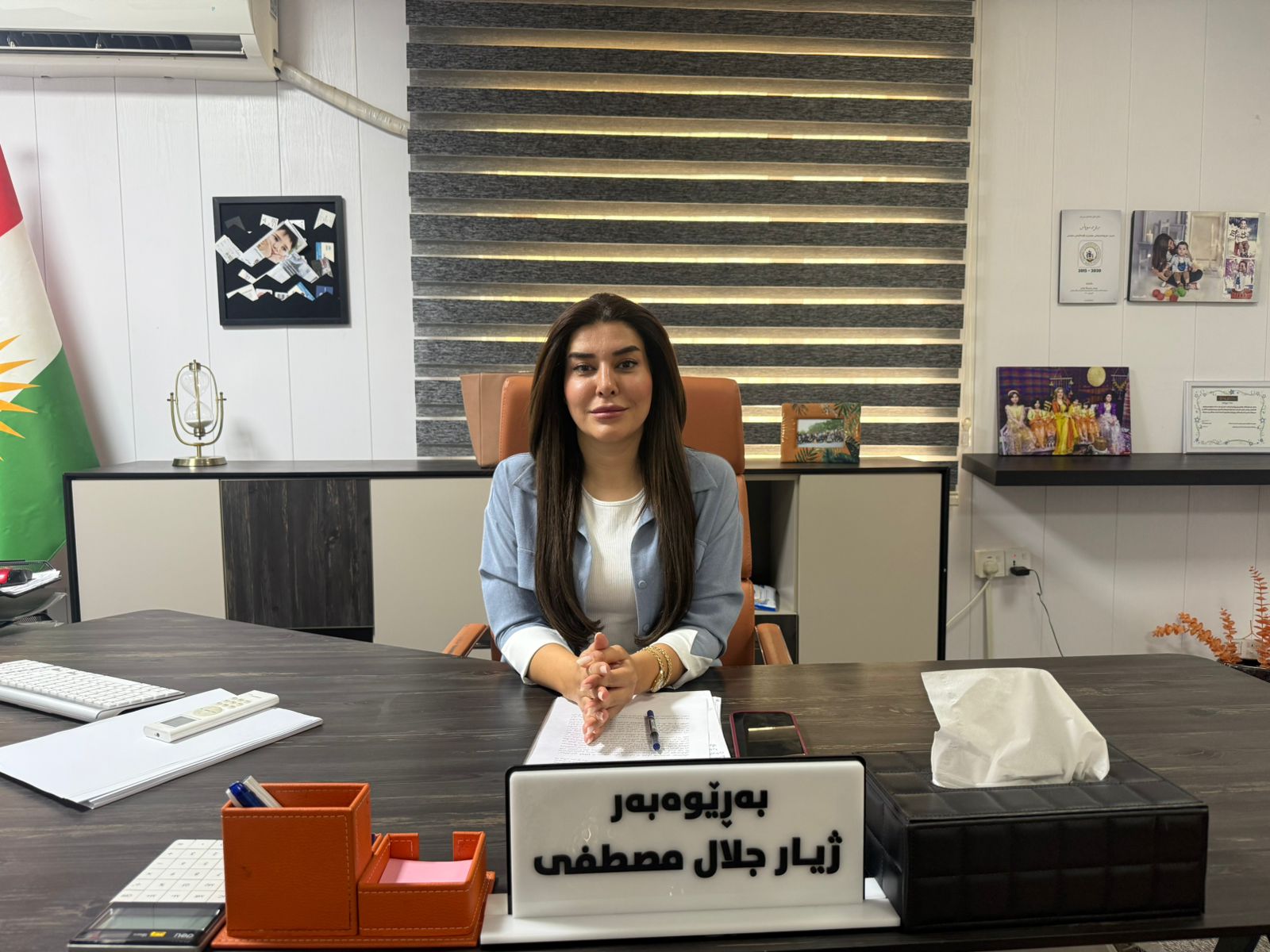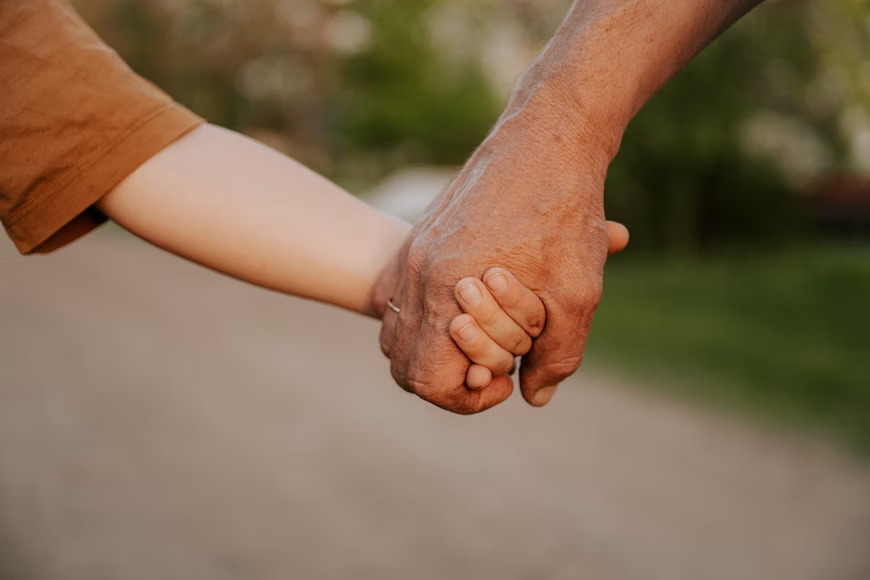Twenty-three children who cannot live with their biological families have been placed in foster families, according to the Director of Social Welfare in Sulaymaniyah. She noted that there are families fostering three children alone.
In an interview with KirkukNow, Director of Social Welfare, Zhiyar Jalal, spoke about foster families and the children who were provided with this care after an extensive evaluation process.
Kirkuk Now: What is foster care?
Zhiyar Jalal: Foster care is a situation in which a child is placed under the care and supervision of a family other than their biological family, under the supervision and support of official staff. To become a foster family, one must go through a long journey that requires a lot of endurance. In other words, foster care is family-based care in which a family takes care of one or more children.
KirkukNow: How long has this process existed, and how did it begin?
Zhiyar Jalal: In 2015, a memorandum of understanding was signed between the Ministry of Labor and STEP, (“a child protection charity working with Syrian and Iranian refugees, internally displaced Iraqi's and orphans or separated children who live in care homes.”)
That same year, the Supreme Committee for the Alternative Family System was formed, and the Director of Social Welfare in Sulaymaniyah assigned a team to oversee the Alternative Family Department.
The process of training social workers then began in 2016, awareness was raised among citizens, particularly families seeking to become alternative families. In August 2016, the Foster Family Department was officially opened by the Minister of Labor and Social Affairs. In November 2018, the Foster Family System document was approved by the Council of Ministers (Kurdistan Regional Government KRG). In August 2022, the pilot phase for children (from zero to four years old) was completed, during which all processes within the alternative family system were tested.
The process began in Sulaymaniyah and is now also being implemented in Erbil. The process is also in its initial stages in Duhok Province.
KirkukNow: How many children have been placed with alternative families so far?
Zhiyar Jalal: The first foster family was approved in November 2016, and in April 2017, a child was placed in foster care. To date, in 2025, a total of 23 children have been placed in foster care by 21 families, with one family having three children.
Two children were also returned to their biological families, one child was taken in by his foster family, and two children were returned from their foster families to a childcare center.
KirkukNow: Are there requests for foster families to adopt children?
Zhiyar Jalal: There are constant requests to adopt children, and some of the approved foster families are requesting to adopt other children.

Sulaymaniyah, 2025: Zhiyar Jalal, the Director of Social Welfare in Sulaymaniyah. KirkukNow
KirkukNow: What are the requirements for a foster family?
Zhiyar Jalal: According to the instructions, they must be a married couple over the age of 25. There is no problem with whether they have children or not. The foster family can also be composed of a single, separated, or widowed woman. The family must reside in the Kurdistan Region (of Iraq) and hold Iraqi citizenship. They must have a clean criminal record and a good reputation. They must also be able to provide financial and moral support for the child.
Kirku Now: How these children placed with foster families are monitored?
Zhiyar Jalal: After the child is placed with the foster family, a social worker is assigned to develop a care plan. In addition, another social worker is assigned to the foster family. The two social workers jointly supervise the child and the foster family to ensure the best interests of the child.
One of the researchers conducts a thorough evaluation of the family in several stages, lasting from six months to a year until approval is reached. After that, the child's care is transferred to the foster family. The researcher also provides ten sessions on safety rules for foster families. The social worker supervising the child visits the foster family's home or communicates by phone. The care plan is renewed every six months by filling out a detailed form.
During the visits, toys and gifts provided by Step Children's Organization are taken to foster closer ties between the child and the social worker. After the child reaches an appropriate age, their life story is prepared using photographs to be presented to the child in the form of a booklet that is narrated to the foster family.
KirkukNow: What are the problems facing the process? Are there any obstacles?
Ziyar Jalal: This is a precise and organized system that requires financial support for its implementation and to protect the child's interests. The staff working in it need special privileges, similar to those in reformatories and shelters, as social workers are obligated to be constantly present for the child until they reach the age of 18, with the goal of developing them into good citizens.
From a legal perspective, there is little support for the interests of children, given that children transferred to foster care lack an identity card and are denied the right to travel until they return to their biological family.
Other problems include a lack of staff and financial resources to open courses for families seeking children and to meet the needs of the department. With the exception of the STEP organization, there are no other sources of information and training for social workers for the next stages.
Other problems include the lack of a well-defined plan for allocating cases related to children and families and the lack of support to ensure the continuity of staff work in the department. This is because each researcher, in addition to supervising the children, must conduct a comprehensive and accurate assessment of each family. Sometimes, the researcher is exposed to risks when rejecting a family's request or withdrawing the child's foster care from a foster family and returning them to their biological family.





